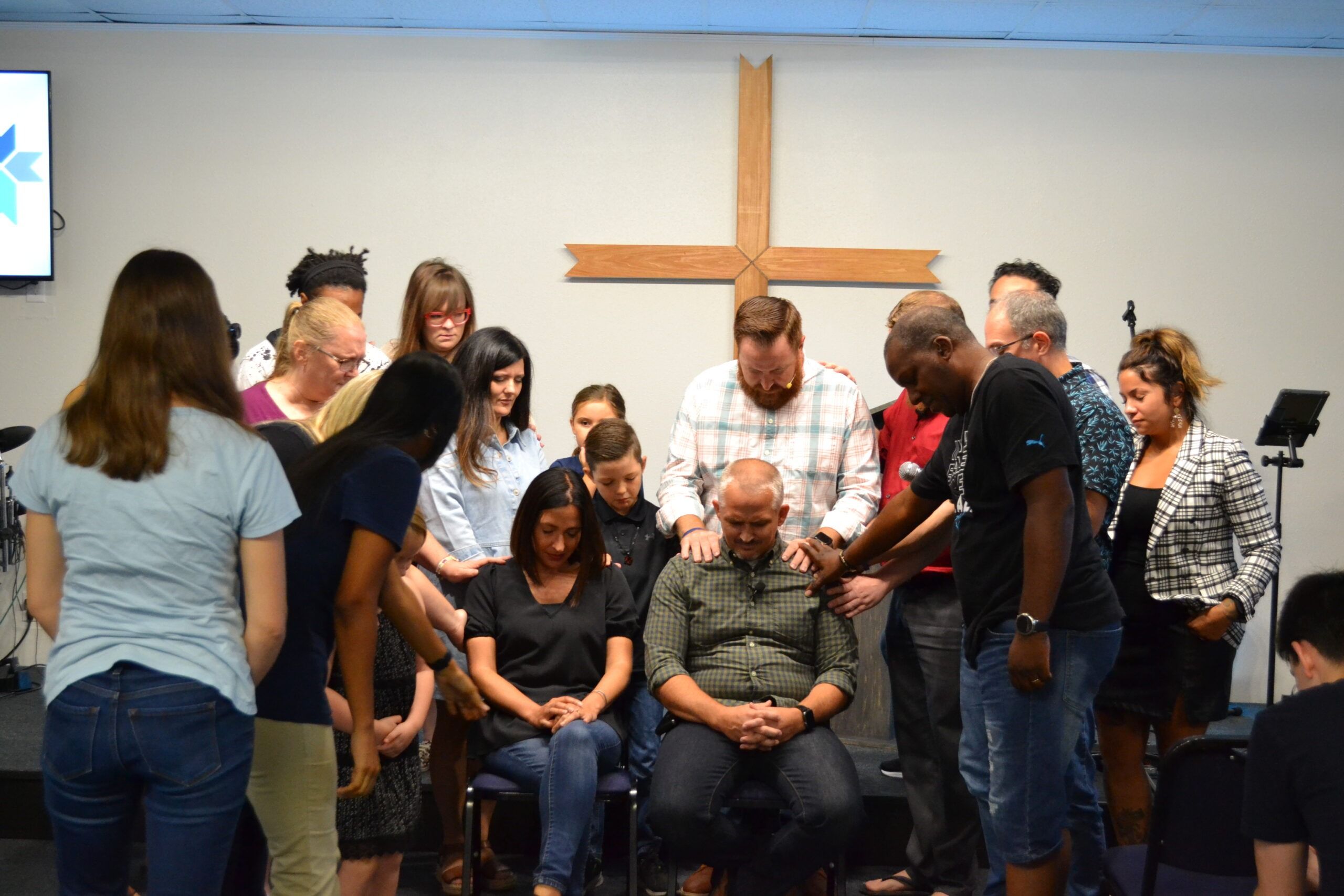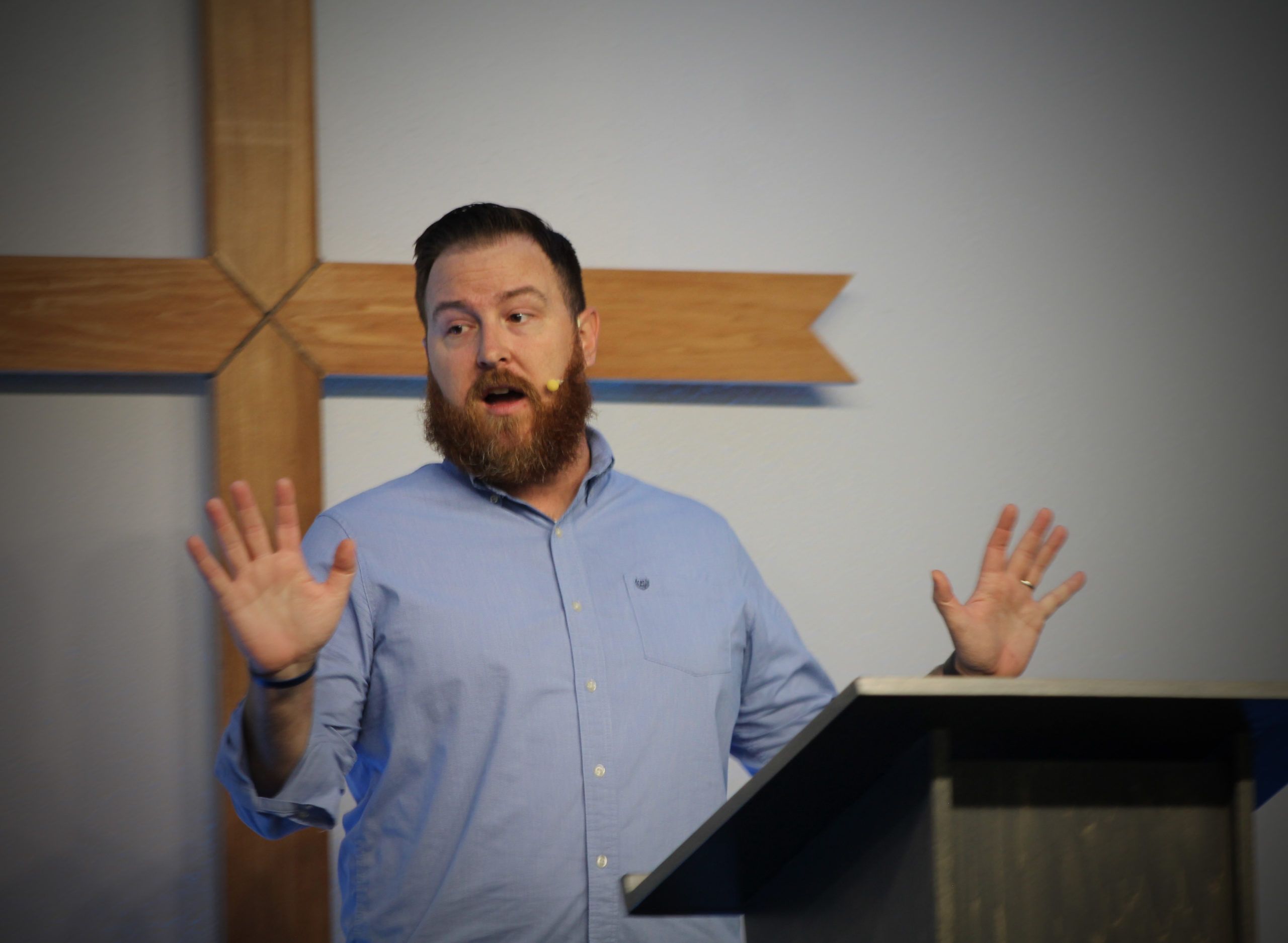Read Time: 20 minutes
Prefer listening rather than reading? Listen to this post on our podcast channel HERE!
In 1570, Puritan Thomas Cartwright was serving as a professor at Cambridge University when he was fired and removed for teaching against the Church of England. Upon his firing, he moved around to different locations, leaving each time due to his teachings from Scripture. He was committed to the teachings of Scripture and to the message of the gospel. As a puritan, he sought to live a life holy, separate from the world, pleasing to the Lord.
In one of his writings, he stated (updated to English):
“Is there anything like our God? Nothing in comparison, and therefore the Prophet (Isaiah 40:17) says that all nations before Him are nothing, yes to Him less than nothing: and if men be nothing for whom the world was made, how much more are all other creatures in heaven and earth nothing before Him, and to Him less than nothing?”
In 1582, after avoiding arrest in several places, he began pastoring a congregation made up of merchants working for a trading company. When the company was relocated, he went with them and they settled in the capital of the Dutch province of Zeeland in the Netherlands, tucked up near the North Sea. In 1586, using primarily the liturgy of John Knox that Knox had given to the Church of Scotland, Cartwright drew up a new Liturgy intended to deepen the congregation’s love for the God of the Bible. We have this incredible liturgy from this congregation during a time of great reformation. This congregation’s liturgy was named after their city in the Netherlands, the Middleburg Liturgy.
As I read through the history of the Middleburg Liturgy, I can’t help but think of our church in Middleburg, Florida almost 500 years later. A little town nestled somewhere between Gainesville and Jacksonville that most people have not heard of. A little town in the Netherlands that most people have not heard of. Two towns that were traditionally filled with people who grew up there until an influx of outsiders came due to work and living conditions. The comparisons are quite interesting.
When I first read about The Middleburg Liturgy, I was of course excited about the name. It’s not often you read about a Middleburg in Church History! But the more I read, the more I saw similarities to the congregations. We have a deep love and desire to know the God of the Bible and to help others do the same. That was the sole purpose of the Middleburg Liturgy and the intent behind what I’m calling, The New Middleburg Liturgy.
Let me explain.
A liturgy in simple terms is an order to the gathering of a church. Depending on the church, most liturgies are based on the tradition of the denomination. Every church practices a liturgy, whether they call it a liturgy or not. There is something, like tradition or an “experience” that directs the structure of the gathering that helps the flow of the gathering or helps stay with the theme for the Lord’s Day gathering. The liturgy includes praying, singing, offerings, preaching, and participation in Baptism and the Lord’s Supper.
Our liturgy, The New Middleburg Liturgy, serves two purposes: to guide and base our gathering on the Word of God and to guide and base our family worship on the Word of God. We believe our gatherings on Sunday can be modeled in our homes, connecting the truth that all of life is intended to worship the Lord our God. This is why we changed the look of our Sunday program. You can leave it in your Bible and use it throughout the week.
Our typical Sunday gathering will look very similar to this liturgy from January 29th, 2023.
CALL TO WORSHIP – Psalm 22:3-5
Yet you are holy, enthroned on the praises of Israel. In you our fathers trusted; they trusted, and you delivered them. To you they cried and were rescued; in you they trusted and were not put to shame. (ESV)
SONG OF PRAISE
Your Mercy – Austin Stone Worship
PRAYER OF GRATITUDE AND CONFESSION
CONGREGATIONAL READING OF SCRIPTURE – Jeremiah 17:7
Blessed is the man who trusts in the LORD, whose trust is the LORD. (ESV)
SONGS OF REJOICING
Your Glory/Nothing But the Blood – All Sons & Daughters
Come Thou Fount – Shane and Shane
PRAYER OF THANKS
CONFESSION OF FAITH – The Apostle’s Creed
I believe in God, the Father almighty, creator of heaven and earth. I believe in Jesus Christ, his only Son, our Lord. He was conceived by the Holy Spirit and born of the Virgin Mary. He suffered under Pontius Pilate, was crucified, died and was buried. He descended to the dead. On the third day he rose again. He ascended into heaven, and is seated at the right hand of the Father. He will come to judge the living and the dead. I believe in the Holy Spirit, the holy Christian church, the communion of saints, the forgiveness of sins, the resurrection of the body, and life everlasting. Amen.
PARTICIPATION IN THE LIFE OF THE CHURCH – See Back of Program
Welcome to new guests, dismissal of kids, announcements, and giving.
PRAYER OF SUPPLICATION (making our requests known to God)
A SERMON FROM GOD’S WORD TO GOD’S PEOPLE – Matthew 4:8-11
SONG OF RESPONSE
Behold Our God – Sovereign Grace Music
DISMISSAL
Let’s work through the various elements and how they apply to both our church gathering and our family worship.
CALL TO WORSHIP
Church Gathering: Scripture commands: You shall worship the Lord your God (Deuteronomy 6:13; Matthew 4:10). This is a call to worship. This is why we start our gatherings with a call to worship, specifically a reminder of who God is from God’s Word. We are not gathering to be entertained. We are not gathering to have our ears itched (2 Timothy 4:3) with relevant ted talks that are void of Scripture. We are not gathering to have a mystical experience with God. We gather to worship the Lord our God!
Family Worship: Whether it is in the morning or the evening, it’s important to take 5-10 minutes to have a time of family worship. Each week, begin your family worship time by reading the call to worship from the previous church gathering. Your children hopefully will remember this being read at the beginning of the gathering.
SONG OF PRAISE:
Church Gathering: This is a song intended to direct our attention to the reason we are gathering: to praise the Lord! Howie Butler, our Praise Team leader, does a great job working with myself and those who are preaching to put together songs that go hand in hand with that Sunday’s sermon text.
Family Worship: There are three songs your children will sing before they are dismissed to KidLife. For your family worship time, choose one of the songs, rather, let your kids decide which song to sing each day of the week. Again, this is a song they have just sung in our Sunday gathering. Search for the song on YouTube that has the lyrics with the video and sing along.
PRAYER OF GRATITUDE AND CONFESSION
Church Gathering: Prayer in our Sunday gathering is not a transitional element, but a moment we humbly go to the King of Heaven. With confidence we come to his throne (Hebrews 4:16)! This time of prayer is to praise the Lord for who He is and for all He has done and then to take time to confess where we have sinned against God, knowing that He is faithful to forgive us (1 John 1:9). As Pastor Ben or Howie pray during the gathering, take the time to pray from your seat as well.
Family Worship: At the end of your family worship time, ask each member of the family what they would like to pray for. Ask if any sins need to be confessed and what they are thankful for. Then ask a member of the family to close in prayer. Teach your children the power of prayer and when someone has a prayer request answered, thank the Lord for it!
CONGREGATIONAL READING OF SCRIPTURE
Church Gathering: For 4-6 weeks, we will read the same verse of Scripture aloud together. This is the same verse our kids are memorizing in KidLife. This is intentional because with a family integrated worship model, we are learning the truths of God’s Word together. Everyone can memorize these verses, and reading them aloud together not only helps in our memorization, but it unites us around God’s Word.
Family Worship: This verse is very familiar to your kids if they are actively attending KidLife. Read it together and even ask them to recite it to you when they have it memorized. Use the very helpful hand motions (created by one of our KidLife teachers, Tristan Tyler) found in the KidLife section on the App.
SONGS OF REJOICING
Church Gathering: These songs are intended to express our joy in the Lord. They are songs we sing about God to God that also help us meditate and think about the goodness of God. Again, these are songs that are selected because they connect to the theme of the sermon. Have you noticed the box surrounding a Scripture reference above the lyrics as we sing? That’s because we selected songs that go hand in hand with Scripture and that Scripture reference is the truth in which we sing.
Family Worship: See the Songs of Praise section above.
PRAYER OF THANKS
Church Gathering: This prayer is a simple “Thank You God” for all that he has done for us. We know we sing because of Him and Him alone! Again, take the time at your seat to thank the Lord for all that He has done for you.
Family Worship: See the Prayer of Adoration and Confession section above.
THE APOSTLES’ CREED:
Church Gathering: As we read the Apostles’ Creed together, we will briefly learn about the different statements that it contains while proclaiming the truths behind what each one of us must believe for ourselves. Read more about why we are reading the Apostles’ Creed Together on Sundays from this previous Blog Post.
Family Worship: It takes one minute (if that) to read through the Apostles’ Creed. This is instilling truths of Scripture into your children, whom we pray will one day proclaim these truths for themselves. It’s written in a way to easily understand and memorize.
CLARITY: There are two portions of the Apostles’ Creed that we have slightly changed due to the change of meaning of words over time.
The initial Apostles’ Creed stated that Jesus descended into hell. The Bible does not teach this, nor was this the intent of the original writers of the Creed. They were referring to Jesus’ death into the grave, intentionally confirming that Jesus actually died and was not just in a coma or deep sleep. Thus, we have modified the Creed to state “He descended to the dead”.
The initial Apostles’ Creed referred to the global Christian church as the “Holy Catholic Church”. Of course, we read the word “Catholic” and immediately think of the denomination. But the word originally referred to the church as a whole, not the denomination. There is much the present day Catholic church does and believes that is completely against the teachings of Scripture. For clarity’s sake, we have modified the Creed to state “the holy Christian Church” to refer to believers from all times and all places since the Day of Pentecost in Acts 2.
PARTICIPATION IN THE LIFE OF THE CHURCH
Church Gathering: This portion of our liturgy is to serve as a reminder of how we, as members of Grace Life Church, can participate in the life and ministry of the church. This includes giving, serving, and gathering outside of our Sunday morning gathering. And let’s be honest, church announcements can become mundane if we fail to see the importance of the local church in the life of every believer! Use this time in the gathering to write your check, give online or through our app, and to register for upcoming events.
Family Worship: While you don’t need to labor on all that is going on in the church during your family worship time, it is good to take a moment and pray for the people of Grace Life Church. Pray for the Elders and leaders, pray for friends, and pray for the Lord to build His church. This is a great addition to your Saturday family worship as you prepare to gather with the church the next day.
PRAYER OF SUPPLICATION
Church Gathering: A prayer of supplication is making our requests known to God (Philippians 4:6). During this moment of prayer, we are asking the Lord to open our eyes to His Word (Psalm 119:8) and to bless the gifts we have generously and cheerfully given to the gospel mission of our church (2 Corinthians 9:6-7).
Family Worship: See the Prayer of Adoration and Confession section above.
A SERMON FROM GOD’S WORD TO GOD’S PEOPLE
Church Gathering: The preaching of God’s Word is the central focus of the gathering of God’s people. We gather to hear from God by studying what He has said in His Word. We do not gather to hear from a mere man and his opinion or to hear a relevant message that intentionally celebrates self. We gather to hear the words of God! This is why we are committed to Expository Preaching. Read more about Expository Preaching in this previous blog post.
Family Worship: Use this time in your family worship to read from a passage of Scripture. It doesn’t have to be the sermon text, you can just begin in the book of Matthew and read a few verses. This is what my family is currently doing. We read roughly 10-20 verses every evening. It will take us two months to read through Matthew’s Gospel account, but this allows for pasuses to answer questions or to refer back to what we read the night before.
Each week, we include the upcoming sermon text so you can read ahead of time. Come each Sunday having already read the sermon text!
SONG OF RESPONSE
Church Gathering: This song is intended to sing in response to what we have just heard from God’s Word. We are singing the truth of the Scripture we just worked through. This is also a time for you to respond to the Holy Spirit’s work in your heart. Maybe you need to confess a sin that the Holy Spirit convicted you of during the sermon. Maybe you need to take a next step in your walk with the Lord. Maybe you need to pray with someone in the church. This is the time to respond to the Holy Spirit.
Family Worship: See the Prayer of Adoration and Confession section above.
DISMISSAL:
Church Gathering: As we close out our gathering, Pastor Ben will remind us one last time of why we gather and what we have just learned. The dismissal is a reminder that we will gather again next Sunday, as long as the Lord has not called us home. It serves as a reminder that our worship does not end, but continues throughout the week! We live each day for the glory of God. (1 Corinthians 10:31)
Family Worship: As you close out your family worship time, remind your family to worship the Lord your God and serve Him only. Remind them of how much you love them and how much Jesus loves them! Remind them that all of life is worship.
The intention behind The New Middleburg Liturgy is to focus our hearts on our God. To see Him and known Him. To worship Him in all things. This is my heart for you and I pray you will behold the greatness of our God!
Let me close by praying this prayer over our church family from Colossians 1:9-14:
And so, from the day we heard, we have not ceased to pray for you, asking that you may be filled with the knowledge of his will in all spiritual wisdom and understanding, so as to walk in a manner worthy of the Lord, fully pleasing to him: bearing fruit in every good work and increasing in the knowledge of God; being strengthened with all power, according to his glorious might, for all endurance and patience with joy; giving thanks to the Father, who has qualified you to share in the inheritance of the saints in light. He has delivered us from the domain of darkness and transferred us to the kingdom of his beloved Son, in whom we have redemption, the forgiveness of sins.
By His Grace,
Pastor Matt




